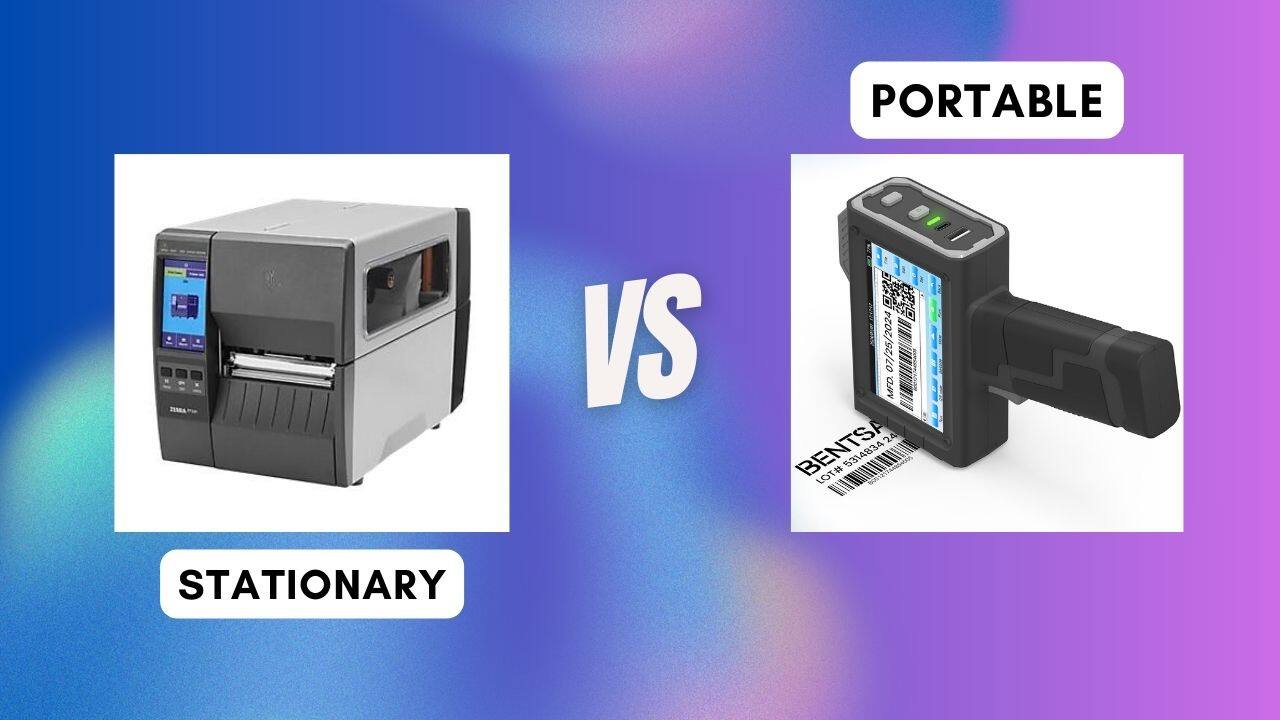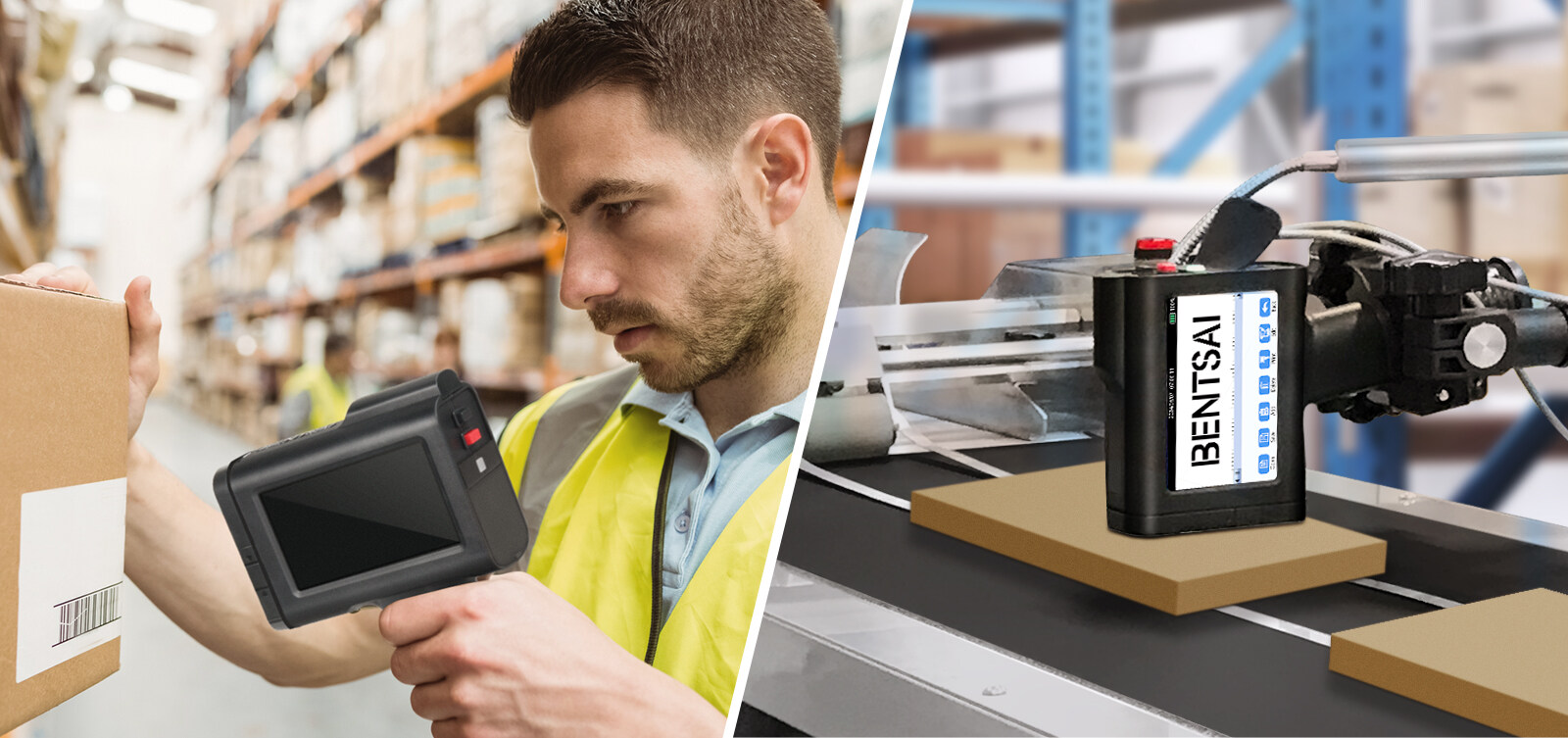Benefits of Portable Handheld Inkjet Printers for Your Business
The rise of portable handheld inkjet printers is driven by several key technological and industrial trends:
- Technological Miniaturization: Compact printheads and lightweight circuitry have made high-quality printing possible in handheld devices.
- Battery and Power Efficiency: Modern lithium batteries provide longer operation times, enabling all-day portability.
- Demand for Surface Versatility: Businesses now require printing on materials beyond paper — such as metal, plastic, glass, and wood.
- Industry 4.0 and Traceability: Growing needs for on-site coding, batch tracking, and compliance have accelerated adoption.
These factors combined have made portable inkjet printers an essential tool for agile, modern production.

Traditional Inkjet Printers vs. Portable Handheld Inkjet Printers
While both types serve the purpose of ink-based printing, their applications and efficiencies differ significantly. Below are the key comparison points that highlight why portable handheld printers have become an attractive alternative.
Mobility & Flexibility
- Traditional printers are fixed devices, typically requiring a stable environment, power source, and designated workspace.
- Portable handheld inkjet printers, by contrast, can be carried anywhere. They enable on-site marking for products, packages, and materials without transporting them to a printing station.
Surface Versatility
- Traditional inkjet printers are mostly limited to paper or label substrates.
- Handheld printers can print directly on various materials, such as metal, plastic, wood, glass, or cardboard — making them ideal for diverse industrial environments.
Operational Efficiency
- Traditional systems rely on feeding mechanisms, label rolls, or conveyor setups, which take time to adjust for different print jobs.
- Portable handheld printers eliminate these constraints by printing directly on the target surface, saving time and reducing setup effort.
Deployment Speed
- Conventional printers often require calibration, driver installation, and media alignment before printing can begin.
- Handheld printers can start printing within minutes — just power on, load the content, and press print. This quick deployment is invaluable for fast-paced or mobile workflows.
Does Your Business Need a Portable Handheld Inkjet Printer?
A portable handheld inkjet printer can bring big benefits to many industries. It offers fast, flexible, and mobile printing for modern business needs. Here's why and how different sectors use it.
Logistics and Warehousing
Reasons and Benefits:
- Ideal for marking boxes, pallets, and shipping containers.
- Reduce labeling errors and improve inventory tracking.
- Supports barcodes, QR codes, and date codes for accurate scanning and tracking.

Construction and Infrastructure
Reasons and Benefits:
- Prints directly on pipes, cables, beams, tiles, or concrete blocks.
- Essential for material tracking and project coordination.
- No need for labels that peel or fade. Speeds up marking and reduces manual work.
- Great for on-site labeling and asset management.
Manufacturing
Reasons and Benefits:
- Allows real-time printing of serial numbers, part codes, and batch details directly on production parts.
- Reduces downtime with fast setup and no extra software.
- Supports traceability and quality control.
- Compact design fits into busy factory workflows.
Field Services
Reasons and Benefits:
- Perfect for technicians labeling newly installed or repaired components.
- No need for bulky equipment or power outlets.
- No computer or network needed.
- Ensures clear, lasting marks for records or compliance.
Specific Use Cases
Portable handheld printers are used in many practical applications. They make printing faster and easier in places where traditional printers cannot work well.
Large Object Marking
- Mark directly on oversized products that can't fit into traditional printing systems.
- No need to move heavy objects to a fixed printer.
- Ideal for warehouses, factories, and construction sites.
- Saves space and reduces handling time.
Irregular Surface Printing
- Works well on curved or uneven surfaces such as bottles, cables, and machinery parts.
- Adjustable print heads keep text clear and steady.
- Special inks help the print stick to smooth, rough, or coated materials.
- Great for products that need branding or serial numbers in hard-to-reach spots.
Dynamic Data in the Field
Handheld printers are a good variable data printing solution for mobile or outdoor work. They let workers print real-time information directly on items, making updates fast and markings clear on site.
Low-Volume and High-Mix Labeling
- Best for businesses that print many different designs in small batches.
- Cuts waste and saves label costs.
- Quick setup for short runs or custom products.
- Supports on-demand printing with no need for large inventory.
- Perfect for workshops, small factories, and specialty products.
In Conclusion
Portable handheld printers make printing easier for many businesses. They are fast, light, and easy to use. They can print on many surfaces like boxes, pipes, wood, and metal. They also work well on curved or rough areas. Real-time data printing helps workers mark items quickly and clearly. These printers save time, cut mistakes, and fit well in factories, warehouses, and field work. As technology improves, they will become even smaller and more powerful. A portable handheld printer is a smart choice for any business that needs speed and flexibility.
Ask Question
No questions and answers

